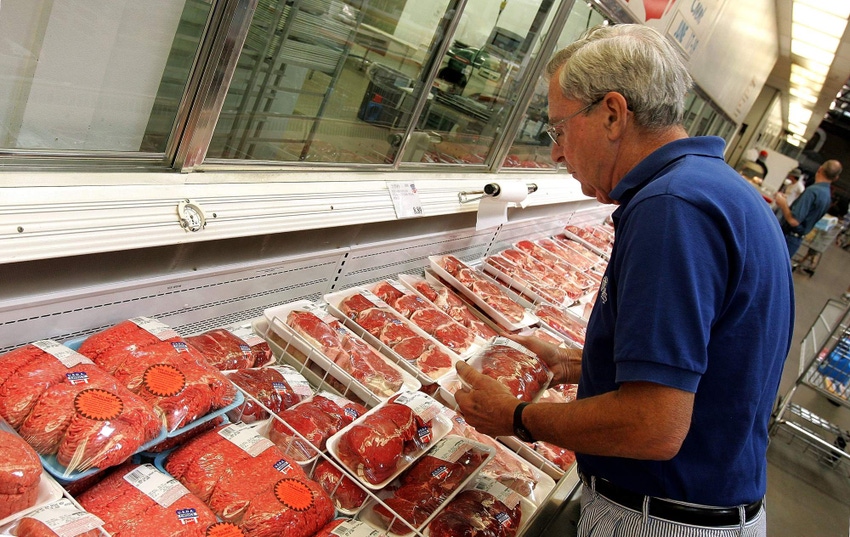NCBA writes to Trump, while Sen. Fischer asks USDA and DOJ to investigate potential unfair practices by beef packers.

The spike in the purchase of beef products at the grocery store has resulted in increased profits for both packers and retailers, yet producers have not shared in that gain, leading legislators and the largest beef industry group in search of answers.
National Cattlemen’s Beef Assn. (NCBA) president Marty Smith sent a letter to President Donald Trump on April 8 requesting that the government act quickly to investigate the striking disparity between boxed beef prices and cattle prices in the futures and cash markets during the current COVID-19 crisis and following the beef packing plant fire in Holcomb, Kan., last August.
In addition, Sen. Deb Fischer (R., Neb.) called on the U.S. Department of Agriculture and the Senate Judiciary Committee to look into potential anticompetitive behavior in the packing industry. Both actions follow calls from Senate Finance Committee chairman Chuck Grassley (R., Iowa) and more than 145 lawmakers for an investigation by the U.S. Department of Justice and USDA into potential market manipulation in the beef sector.
On Jan. 22, 2020, the day after the first COVID-19 diagnosis in the U.S., the CME live cattle futures April contract closed at $126.775/cwt., while Nebraska-negotiated cash cattle traded at a weighted average price of $123.94/cwt., according to USDA Livestock Mandatory Reporting (LMR) data.
LMR’s closing Choice boxed beef index for the week ending Jan. 24, 2020, was $214.78/cwt., and the Select index closed at $212.17/cwt. As of April 3, 2020, the CME live cattle futures April contract had declined more than 30% in price to close at $88.325/cwt., with Nebraska’s live cash cattle weighted average having fallen to $111.97/cwt. Meanwhile, boxed beef for the week ending April 3, 2020, was $255.07/cwt. for Choice and $243.65/cwt. for Select.
In the NCBA letter, Smith asked Trump to direct USDA to expand the ongoing investigation into market activity after the Holcomb fire to include current market volatility “in the hope of identifying whether inappropriate influence occurred in the markets and to provide our industry with recommendations on how we can update cattle markets to ensure they are equipped to function within today’s market realities.”
The letter also requests the Commodity Futures Trading Commission to study the influence of speculators on live and feeder cattle futures contracts to determine whether these contracts remain a useful risk management tool for cattle producers.
“Fair and functioning cattle markets are vital to the sustainability of our industry,” Smith wrote. He also pointed out the importance of keeping the beef supply chain moving during this time of volatility and instability.
“The market woes for cattle producers will only grow if packing plants shut down or slow down for an extended period,” Smith stated. “As cattle producers, we are the beginning of the beef supply chain, and we need continued vigilance and oversight of all cattle market participants – for the benefit of America’s cattle producers and all Americans.”
Fischer wrote to Agriculture Secretary Sonny Perdue requesting that USDA expand its investigation of beef pricing margins that was launched following the Holcomb beef processing facility fire to include recent market impacts as a result of COVID-19. The investigation would determine if there is any evidence of unfair practices and ensure that the beef meatpacking industry is compliant with the Packers & Stockyards Act during this national emergency.
“Twice in the last year, events have highlighted cattle producers receiving diminished prices while boxed beef cutout prices have increased. If USDA does uncover any evidence of wrongdoing, the agency should immediately provide any and all relevant information to the Department of Justice so that it can conduct a larger probe examining whether the current structure of the beef meatpacking industry and their actions are in compliance with U.S. antitrust law,” Fischer said in her letter.
About the Author(s)
You May Also Like



.png?width=300&auto=webp&quality=80&disable=upscale)

